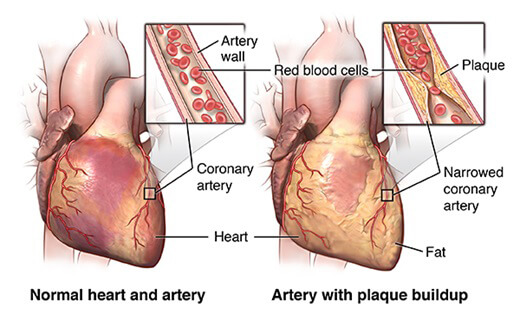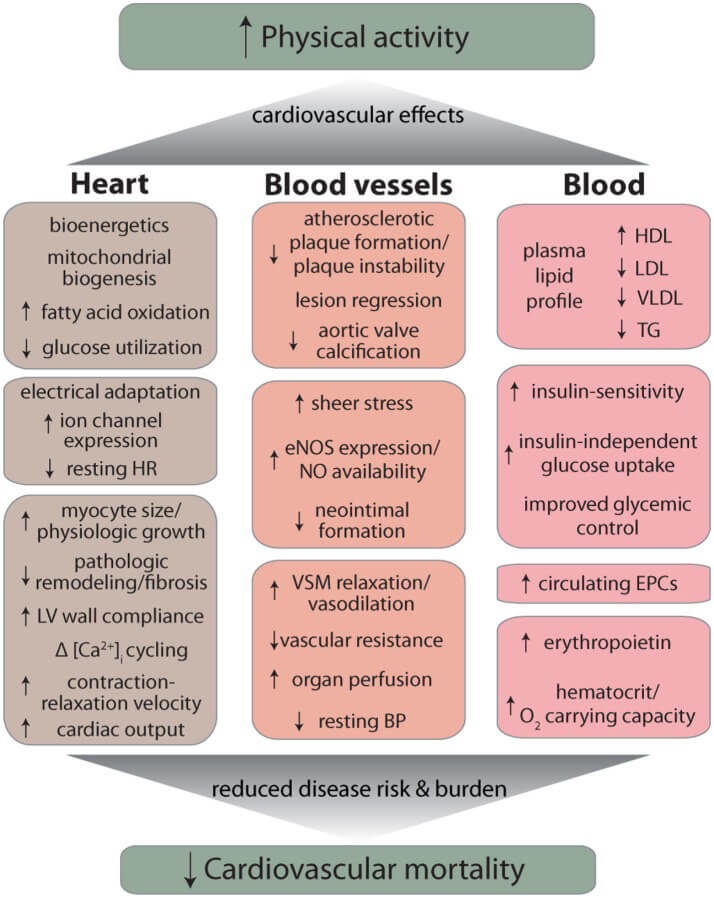The Cardiovascular system includes the heart, blood vessels and blood. Cardiovascular disease is a largely preventable condition. Although several risk factors for cardiovascular disease are non-modifiable (age, male gender, race, and family history), many others are amenable to intervention. These include elevated blood pressure, abnormal blood sugar, high cholesterol, smoking, obesity, a high fat and high calorie diet and excess stress.
Cardiovascular diseases include, but are not limited to ischaemic heart disease (IHD)/acute myocardial infarction (AMI), chronic heart failure (CHF), coronary artery bypass graft (CABG) surgery and percutaneous transluminal coronary angioplasty (PTCA), arrhythmias (e.g. atrial fibrillation) and pacemakers, stable and unstable angina, hypertension, peripheral artery disease (PAD), and valvular heart disease.
Whether you are ‘already healthy’ or have been diagnosed with a type of cardiovascular disease, the importance of engaging in regular exercise is paramount. The benefits of regular exercise on the cardiovascular system include:
- Reduced blood pressure
- Increased insulin sensitivity and glycaemic control
- Increased good cholesterol (HDL) and reduced bad cholesterol (LDL & Triglycerides)
- Increased blood oxygen carrying capacity and perfusion of oxygen to muscles (VO2max)
- Increased relaxation/dilation of blood vessels and reduced peripheral/vascular resistance
- Increased cardiac output
- Decreased resting heart rate
- Increased size and contraction-relaxation velocity of heart muscles
- Improved use of fuel sources by heart muscle (more fats and less glucose)
- Reduced pathologic remodelling/fibrosis
- Reduced atherosclerotic plaque formation and instability
- …and many more!!!
Exercise Physiologists use evidence based research to effectively prescribe exercise for all populations, including those with cardiovascular disease. Your initial consultation will involve taking a thorough assessment of your current and past medical history, current and past exercise history, social history (i.e. occupation, home environment, sports/leisure, alcohol, smoking), family history, list of medications, and baseline measurements (e.g. height, weight, resting heart rate, blood pressure, circumferences). Your Exercise Physiologist will use this information to select and conduct appropriate fitness test(s) to further evaluate your physical health and help you set realistic goals. Once this has been achieved you will then be setup on an exercise program where your patience, persistence and discipline will undoubtedly deliver positive results!




